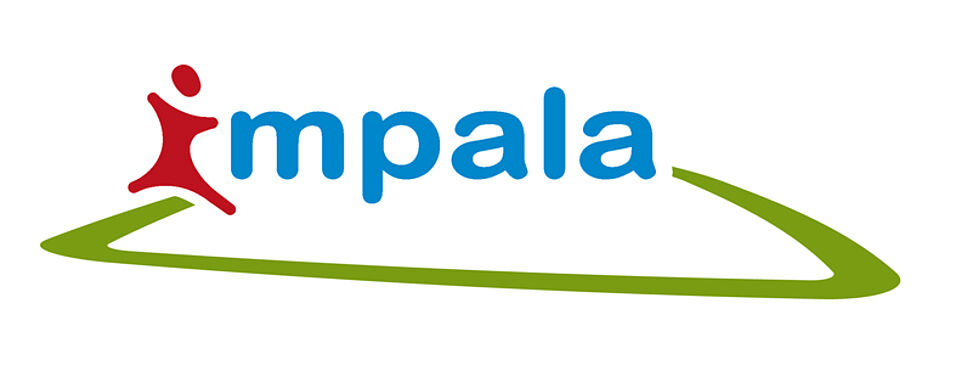Objectives of IMPALA
The EU-sponsored (DG SANCO) IMPALA project aims to identify, implement, and disseminate good practice in the planning, financing, building, and managing of local infrastructures for leisure-time physical activity.
To gather the information needed, IMPALA seeks to analyze national policies, mechanisms and instruments used in the development of infrastructures for leisure-time physical activity.
Three types of infrastructures for leisure-time physical activity are distinguished:
- sports facilities (such as gyms, swimming pools, sports grounds)
- leisure-time infrastructures providing specific opportunities for sports and physical activity (such as parks, playgrounds, and cycle paths)
- urban and natural space usable for sports and physical activity (such as streets, public places, forests, beaches)
IMPALA will assist in concerting efforts for the development of local infrastructures for leisure-time physical activity in EU member states, thus helping to reduce inequalities in access to infrastructures for leisure-time physical activity within and across nations.
Implementation
- To develop and agree on good practice criteria for policies and mechanisms for the development of infrastructures for leisure-time physical activity
- To disseminate and implement good practice guidelines
Assessment of national policies, mechanisms and instruments in Europe
Lead Partners: TNO Leiden, Netherlands / University Jyväskylä, Finland
In the first assessment phase, qualitative interviews with experts and policy makers were used to collect information about existing policies for the development of infrastructure for leisure-time physical activity, like national laws, guidelines, and action plans.
While guidelines and actions plans, often based on some kind of inventory, exist in all 12 participating countries, results from IMPALA show differences in their implementation, utilization and practice. There are policies that deal with one type of infrastructures or one specific physical activity. In Finland, there is a national action plan on sports facilities. Germany and Austria implemented actions plans on bicycling. Few comprehensive policies exist that are based on a broad understandingof infrastructures and physical activity, like the Norwegian Action Plan on Physical Activity. There is also a lack of policies on broader use of and improved access to existing infrastructures. Developing opportunities for physical activity that reach all population groups and generations is not often considered. In many countries, laws and regulations are implemented on a regional rather than a national level. In Lithuania, the private and not the public sector mainly regulates infrastructures for sport and physical activity. In all participating countries, the range of involved is similar: mainly sports, urban and spatial planning, environment, health, tourism, and economics.
In a second assessment phase, further qualitative interviews were used
to collect information on existing national mechanisms (i.e. procedures
and instruments). The analysis of all three types of infrastructures for
leisure-time physical activity was carried out by the criteria of planning,
financing, building and management.
Four general planning approaches (inventories, per capita approaches, needs assessment, participatory planning) can be differentiated. A majority of the countries has some kind of inventory of infrastructures. About half of the countries apply per-capita-approaches for developing infrastructures. Few countries only use systematic and comprehensive approaches to needs assessment or participation of relevant stakeholders and sectors. Building, financing, and management of infrastructures provide a huge potential for policies and systematic mechanisms that promote social equality, intersectoral collaboration and participation.
The IMPALA reports on assessing policies and mechanisms are available online at:
www.impala-eu.org/reports
Agreement on good practice criteria and new EU guidelines
Lead Partner: University of Erlangen-Nuremberg, Germany
Based on the information from the assessment phases, a set of quality criteria for policies and mechanisms is developed. These criteria will be presented in new EU guidelines on improving infrastructures for leisure-time physical activity, including examples of good practice. Existing policies and mechanisms in the participating countries will be evaluated against the guidelines of good practice. The guidelines will also enable other relevant organisations and countries to assess relevant policies and mechanisms. This can be used for further improvement of policies and mechanisms on the development of infrastructures for leisure-time physical activity.
Results
The final results of IMPALA will be presented on an international meeting for experts and policy-makers in Autumn/Winter 2010. Additionally national workshops will be held to disseminate the report among local experts.
IMPALA-Team in Austria
Department of Sport Pedagogy
Centre for Sport Science - University of Vienna
Head: o. Univ.-Prof. Dr. Michael Kolb
Scientific staff: Ass. Prof. Dr. Rosa Diketmüller, DI Irene Bittner
Contact: irene.bittner@univie.ac.at
Collaborating Partner in Austria
Austrian Institute for School and Sport Facility Development (ÖISS)
IMPALA - Project Coordination
Friedrich-Alexander-University Erlangen Nuremberg
Institute of Sport Science and Sport
Department Public Health
Prof. Dr. Alfred Rütten
European project partners
The IMPALA project group currently consists of 25 institutions from 12 European nations:
Austria, Czech Republic, Denmark, Finland, France, Germany, Italy, Lithuania, Netherlands, Norway, Portugal, Spain.
Project duration
January 2009 - December 2010 (24 months)
Associated Partners
Austria: University of Vienna
Czech Republic: Palacky University, Olomouc
Denmark: University of Southern Denmark
Finland: University of Jyväskylä
France: University of Nancy
Germany: University of Erlangen-Nuremberg
Italy: University of Rome Foro Italico
Lithuania: Academy of Physical Education, Kaunas
Netherlands: TNO Quality of Life, Leiden
Norway: Oslo Universtiy College
Portugal: University of Porto
Spain: University of Extremadura
Collaborating Partners
Austria: Austrian Institute for School and Sport Facility Development
Czech Republic: City of Olomouc
Denmark: City of Odense – Traffic Department
Finland: Association of Finnish Local and Regional Authorities
France: Ministry of Health and Sports
Germany: German Olympic Sports Federation
Italy: Censis Serviui S.p.A., Acciari Consulting
Lithuania: Kaunas Municipality
Netherlands: VU University Medical Center, Netherlands Institute for Sport and Physical Activity
Spain: Regional Government of Extremadura
WHO European Centre for Environment and Health
Project Funding
The IMPALA project is funded by the European Commission, Executive Agency for Health and Consumers, Grant Agreement No. 2008 12 08.

